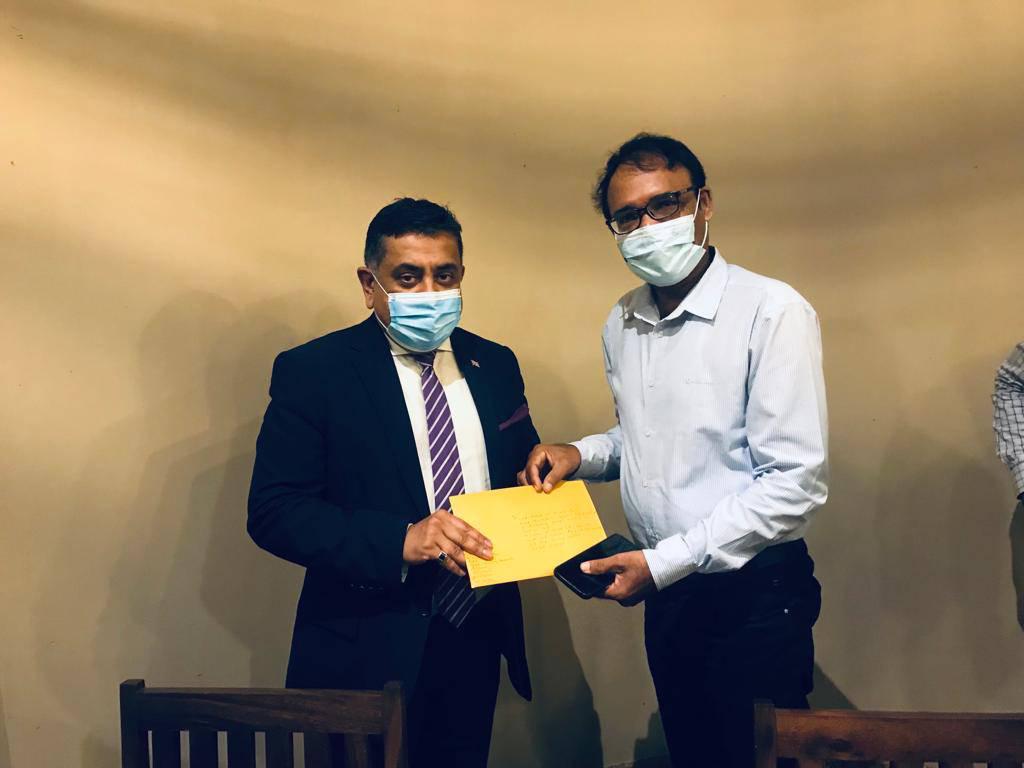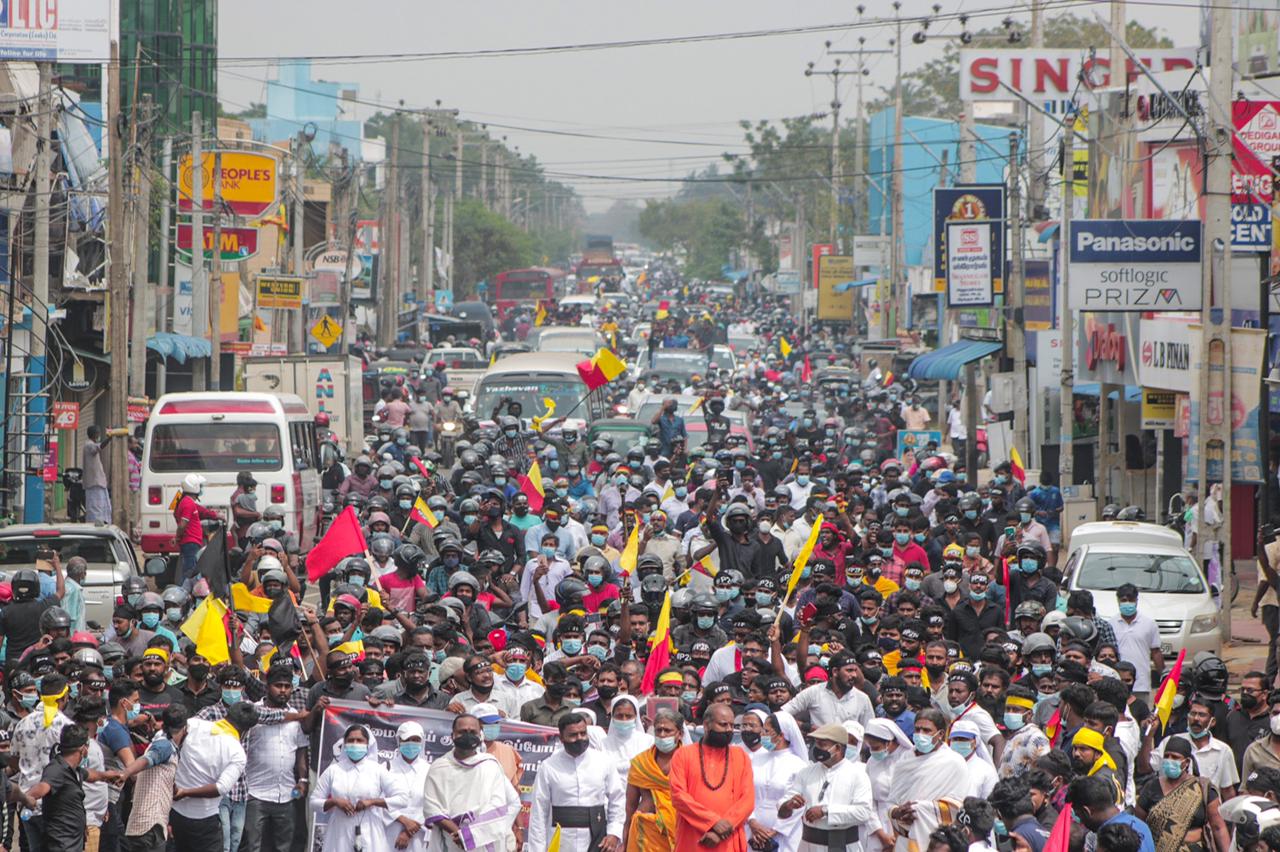A Brief Colonial History Of Ceylon(SriLanka)
Sri Lanka: One Island Two Nations
A Brief Colonial History Of Ceylon(SriLanka)
Sri Lanka: One Island Two Nations
(Full Story)
Search This Blog
Back to 500BC.
==========================
Thiranjala Weerasinghe sj.- One Island Two Nations
?????????????????????????????????????????????????Thursday, January 20, 2022

Britain’s Minister for South Asia, Tariq Ahmad meeting with P2P coordinator S. Sivayoganathan
19 January 2022
Following a meeting with Britain’s Minister for South Asia, Tariq Ahmad, People Uprising Movement (P2P) has released two letters detailing the ongoing plight of Tamils in Sri Lanka and their demand for self-determination.
“We Tamils have been fighting for over seventy years for self-determination. We are a nation of people living in the merged North and East in the island of Ceylon. We have our right to determine our own destiny. Successive Sri Lanka Sinhala – Buddhist Governments have continually suppressed our right to self-determination and govern us employing brutal military force to annihilate, which amounts to Genocide” the statement read.
The letter went on to reject the 13th Amendment stating:
“As long as Sri Lanka remains a unitary state with absolute powers in the hands of the Sinhala politicians, the structural genocide of Tamils will not stop. We do not believe a solution based on the 13th amendment or similar provisions will lead to long-lasting peace”.

The statements reemphasised the demands of the P2P protesters who marched Pottuvil in Amparai to Polikandy in Jaffna, two points delineating the furthest ends of the traditional Tamil homeland, in defiance of numerous court orders.
Read more here: From Pottuvil to Polikandy: Why are Tamils marching?
The letter further expresses disappointment at the failure of the UN Human Rights Council adding:
“Six years on, the process has not led to any tangible progress towards accountability or justice. This has emboldened the Sri Lankan state and security forces to continue their human rights abuses against the Tamils with impunity”.
In addition, it highlights the continued use of Sri Lanka’s draconian Prevention of Terrorism Act which has been used “to intimidate and imprison Tamils without due process and many Tamils continue to languish in Sri Lanka prisons under this law that breaches international conventions”.
.jpeg)
The statement also details “the intimidation and targeted attacks on activists and human rights defenders” which has seen a number of deaths in suspicious circumstances. It also stresses the allegations of sexual violence against Sri Lanka’s security forces. In detailing the complete failure of accountability in Sri Lanka the letter details the pardoning of Sunil Rathnayake, who was sentenced to death over the massacre of eight Tamil civilians, including three children.
In their conclusion, they call for Sri Lanka to be referred to the International Criminal Court; request that the UK “as a voting member of the International Monetary Fund (IMF) call for not only economic reform but state structural reform”; and “work with international partners to find a political solution based on the Tamil People being able to exercise their democratic rights to self-determination”.
They add:
“As a guarantee that the Genocide that took place against Tamils is not repeated, a permanent political solution should be found by getting the wishes of the Tamil people through internationally conducted and monitored referendum”.
Read the letters here and here.
Read more about Lord Ahmad's visit below:
